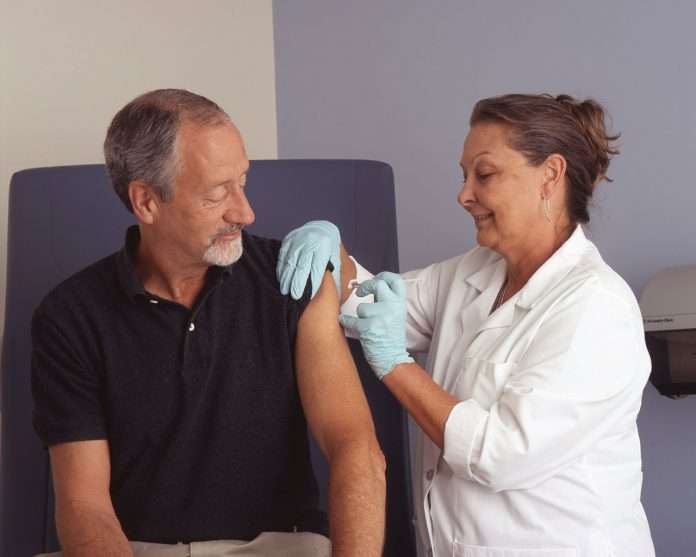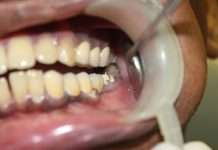Are you suffering from recent coughs, wheezing, and difficulty in breathing? Get medical attention as soon as possible, as the symptoms match with pneumonia. How deadly is the disease? What should you know about pneumonia symptoms and pneumonia vaccine? Read this article to enlighten yourself with some evident facts about pneumonia and its possible treatment strategies for quick recovery.
If you are looking for a good prognosis and early revival, pneumonia vaccine at the right time can do you wonders. Pneumonia is an infection of your lungs that ranges between moderate stages to extremities, depending upon your correct diagnosis. When the conditions are severe (late diagnosis), you need to visit a hospital and be under doctor’s observation.
What exactly happens when you have pneumonia? Your lungs have alveoli or air sacs within them, which help in respiration. The bacteria or virus responsible for causing pneumonia infects the alveolar sacs of your lungs.
What sort of infection is it? Potential viruses and bacteria fill your lung’s air sacs with fluid or pus, thereby hindering the process of respiration. The infection leads to difficulty in breathing inadequate amount of atmospheric oxygen, and further transportation into the blood. Pneumonia vaccine can help you prevent the onset of such a pulmonary disease, as well as ensure proper immunization.
Table of Contents
What are the chances of getting pneumonia?
You must be thinking about who all can get pneumonia. Well, pneumonia can occur to you at any age. There is no specific age group with a proneness towards this disease. However, when it comes to potential risks- children below 2 years of age and adults beyond 65 years are threatening.
The major reason behind such vulnerability being an enfeebled immune system, which is not yet ready to fight strong pathogens. You can either have pneumonia in one of your lungs, or both your lungs.
There is another tricky condition where you might be having pneumonia, but you will not even know it. Doctors call such a state of pneumonia as ‘walking pneumonia’, mainly because of bacterial, fungi or viral infection. If the type of pneumonia is viral or bacterial, you can easily transmit it to other people via direct contact.
Certain regular habits and addictions such as drinking alcohol beyond limits or smoking too much can upsurge chances of pneumonia. Getting pneumonia vaccine in the right age can evade probable chances of getting the infection.
What are the signs of pneumonia?
The type and extent of pneumonia symptoms can differ from individual to individual, depending upon the infecting pathogen. Your current health status, as well as age, also play a major role in determining the magnitude of the infection. The symptoms gradually become noticeable over a couple of days.
Some of the usual signs indicating pneumonia are:
- Frequent and unusual shivers, accompanied by excessive sweating and fever
- Coughs producing mucus or phlegm
- Failing to breathe properly, due to lack of optimum oxygen supply to the lungs
- Every time you cough or breathe, you feel a sheer pain in your chest
- Losing your appetite, followed by extreme weariness
- Experiencing nausea, diarrhea, and vomiting
How different is bacterial pneumonia from viral one?
Pneumonia can majorly happen due to infections from viral and bacterial strains. There are only rare times when you will find fungi causing pneumonia.
When a bacterial species causes pneumonia, the possible symptoms are quite likely to develop either rapidly or gradually. Bacterial pneumonia can be more life-threatening than any other pathogenic forms.
When a viral strain causes pneumonia, you will mostly start noticing potential symptoms over a greater period. The developmental process or replication rate of viruses in pneumonia is quite slow. Certain signs to notice in the early stages of viral pneumonia include dry cough, weakness, fever, and headache. The symptoms usually tend to worsen within one day or two.
What should you know about pneumonia vaccine?
Pneumonia vaccine or pneumococcal vaccination is the process of preventing the possibility of a life-threatening pulmonary disease like pneumonia. The most common type of pneumonia is a bacterial one, because of the infection by Streptococcus species (Streptococcus pneumoniae). Pneumonia vaccine can aid in protecting your immune system from the attack of potential pathogens causing pneumonia for many years.
There are beyond 80 species of bacteria that can cause pneumonia, but pneumonia vaccine can cure only 23 pneumococcal species. However, it is not at all bad news. The action range of pneumonia vaccine covers the major and most common forms of pneumonia, which can easily attack you.
However, there are two key things to remember about pneumonia vaccine before administering it.
- Pneumonia vaccine will not protect you from any other form of the pathogen causing pneumonia, except for pneumococcal bacterial strains.
- There is a specific composition of pneumonia vaccine. You will not get any protection against any other bacterial species that is not a part of the pneumonia vaccine. Apart from the wide range of 80 possible pneumococcal bacteria, pneumonia vaccine contains just 23 serotypes to prevent bacterial pneumonia.
How to administer pneumonia vaccine?
The doctor will directly inject pneumonia vaccine in your bloodstream to trigger your immune system against bacterial species causing pneumonia. The technique that helps in activating your overall immune system against an incoming, specific pathogen is immunization. Doctors often refer pneumonia vaccine as pneumococcal vaccination or pneumonia immunization.
On stimulation, your immune functioning alters and starts producing more antibodies that can easily bind to attacking pneumococcal pathogen. The reaction between the antibody and the incoming antigen (pathogen) will result in the destruction of the bacteria.
There is a new conjugated pneumonia vaccine for children below the age of 2 years, to stimulate the underdeveloped immune system. The special form of pneumonia vaccine came into action in 2010. It promises protection against 13 serotypes than just seven serotypes of pneumococcal bacterial species.
A single shot of conjugated vaccine against pneumococcal bacteria can protect-
- Almost 8 babies in a population of 10 from severe infections such as invasive pneumococcal disease
- Adults falling in the age group of 65 years or above (75 individuals in a population of 100) from invasive pneumococcal disease
- Individuals more than 65 years old (45 adults in a population of 100) from pneumococcal pneumonia
When should you take pneumonia vaccine?
Doctors recommend a shot of pneumonia vaccine when you belong to any of the below-listed age groups:
- If you are under the age of 2 years:
In this case, you require four consecutive shots at regular intervals. The intervals should be in the following pattern- 2nd month, 4th month, 6th month, followed by a booster shot between 12th and 15th month.
- If your age is 65 years or beyond:
In this case, you need to go for two shots to last enough for the remaining time of your life.
- When your age is more than 2 years but less than equal to 64 years:
In this age group, you should normally have a proper full functional immune system. If you are having any immunological disorders due to improper lifestyle habits, you require one to three pneumonia vaccine shots.
The chance of prospective health risks beyond 2 years of age increases with each passing day. You should more likely go for pneumonia vaccine shots if you have any of the following health complications:
Spleen disorders
- Dysfunction of spleen resulting in sickle cell anemia
- Absence of spleen functioning leading to asplenia
Cancer-
- Multiple myeloma
- Malignancies of blood like leukemia
Lung or pulmonary disorders-
- COPD or chronic obstructive pulmonary disease
- Chronic bronchitis
- Emphysema
- Organ transplantation
- Conditions denoting immunosuppression such as HIV-AIDS
- Failure in kidney functioning
- Cardiac disorders like congestive heart failure and cardiomyopathy
- Chronic dysfunction of liver
- Leaks in spinal fluid
- Diabetes mellitus
- Alcoholism
If you have recently undergone splenectomy (spleen removal), consider taking pneumonia vaccine two weeks before the surgery. The same condition applies for procedures such as therapies of immunosuppression.
Pneumonia is an extremely common lung disease that can happen to infants or children very easily. Therefore, make sure that you have given your child adequate number of pneumonia vaccine shots to prevent the infection.
If you are older than 65 years of age, you are at a greater risk. Several serious health complications can occur due to pneumococcal infection at an older age. Remember to get pneumonia vaccine before reaching the age of 65, in case your immunity levels are low.
What are PPSV23 and PCV13 vaccines?
When you are looking for pneumonia vaccine, you will often come across two distinct vaccine names- PPSV23 and PCV 13. PPSV23 is the acronym for pneumococcal polysaccharide vaccine, and PCV13 stands for pneumococcal conjugate vaccine. The other name for PCV13 is Prevnar 13, and for PPSV23 is Pneumovax 23.
PCV13 gives you protection against 13 unrelated strains of bacteria responsible for causing pneumonia. You usually administer PCV13 vaccine in children below the age of 2 years at four different intervals. Doctors give PCV13 pneumonia vaccine to adults only once, when your age is beyond 64 years. If you are below 19 years with an immunological condition, doctor may prescribe you a shot of PCV13 as precaution.
On the other hand, PPSV23 defends you from 23 potent pneumococcal bacterial strains. If you are above the age of 64 years, doctor will prescribe you a single dose of PPSV23. When you are over 19 years with a habit of nicotine intake or regular smoking, PPSV23 is the first choice.
Points to remember
There are certain pointers to be aware of while going for PPSV23 and PCV13 vaccines.
- You can prevent health risks like meningitis and bacteremia with both Prevnar 13 and Pneumovax 23 vaccines.
- Remember not to take shots of both the vaccines in close intervals. Wait at least for a year to go for the next shot.
- You will require more than a single vaccine shot against pneumonia in your lifespan. Studies show that if you are above 64 years, getting shots of both PPSV23 and PCV13 can be beneficial. Both the vaccine shots can provide you a better immune stimulation for fighting against bacterial strains of pneumonia.
- The final precaution you need to take prior to your pneumonia vaccine shots is allergic response. You should be completely aware of the components present in PCV13 and PPSV23. Consult a doctor to check for any allergic reactions to every single ingredient contained in the vaccines.
What are the expected side effects of pneumonia vaccine?
If your immune system results in a reaction towards a vaccine, then you are probably going to come across adversities. However, the substances present in a pneumonia vaccine are mostly harmless polysaccharides of a bacterial protein coat.
Some minor side effects of pneumonia vaccine are-
- Mild fever with a body temperature of 100.4°F or 38°
- Redness, inflammation and irritation at the site of vaccine shot
The degree of negative effects sometimes depends on your age and general health conditions as well. For infants, the possible adversities can be-
- Drowsiness
- Unable to sleep
- Loss of appetite or not eating properly
- Irritable behavior
Some of the rare symptoms in children are-
- Febrile seizures that occur due to a high grade fever, which is beyond 101°F
- Redness from constant itching of rashes
When should you avoid getting PCV13 shot?
Do not go for PCV13 vaccine if have experienced allergic reactions to the following earlier:
- Alternative version of Prevnar 13, which is Prevnar (PCV7)
- A vaccine that has diphtheria toxoid as an active component, like DTaP
- Allergies to any earlier injections against pneumonia
When to avoid PPSV23 vaccine?
Avoid taking PPSV23 shots if you have come across allergies against any of the following criteria:
- Specific allergic reaction to a particular component in the vaccine
- A past exposure to PPSV23 shot that proved unsuitable for your body (including serious allergic responses)
- Under extreme sick conditions
Precaution for pregnant women
PPSV23 can prove to be dangerous if you are pregnant. If possible, try to get the vaccine prior to your pregnancy.


















